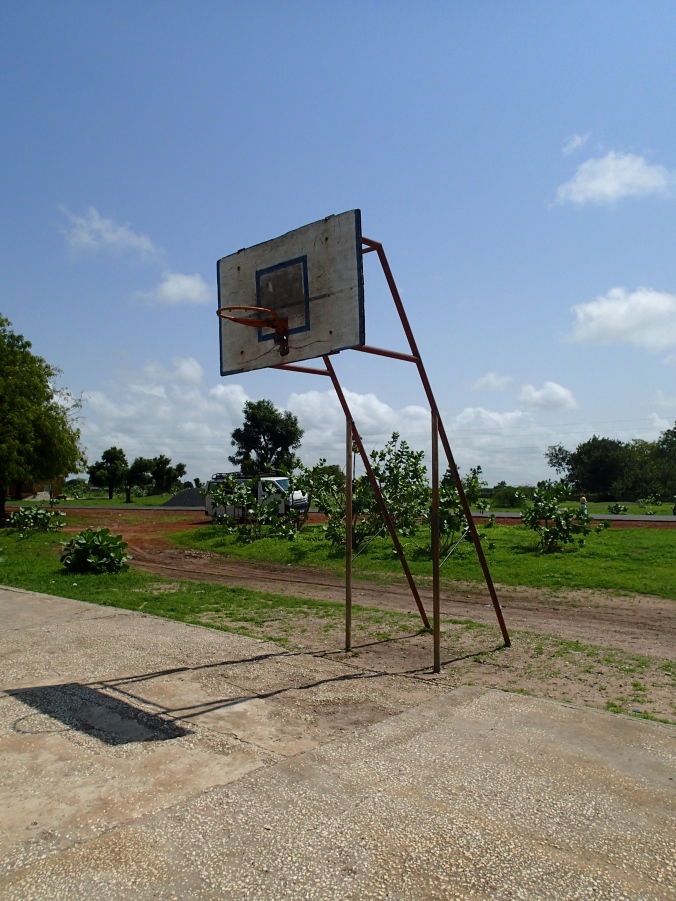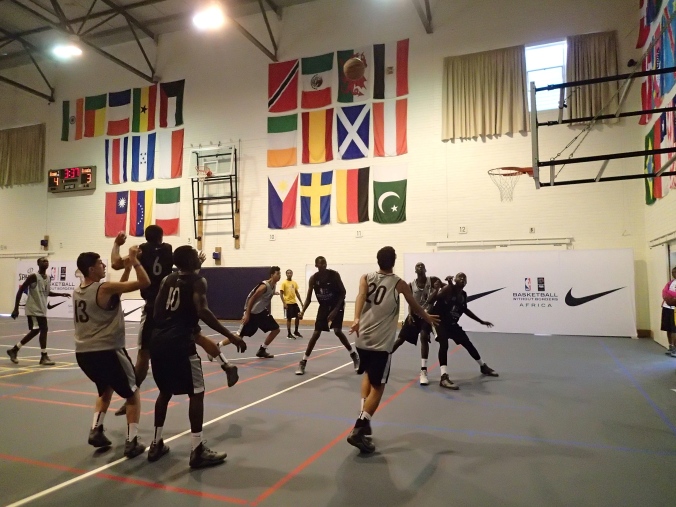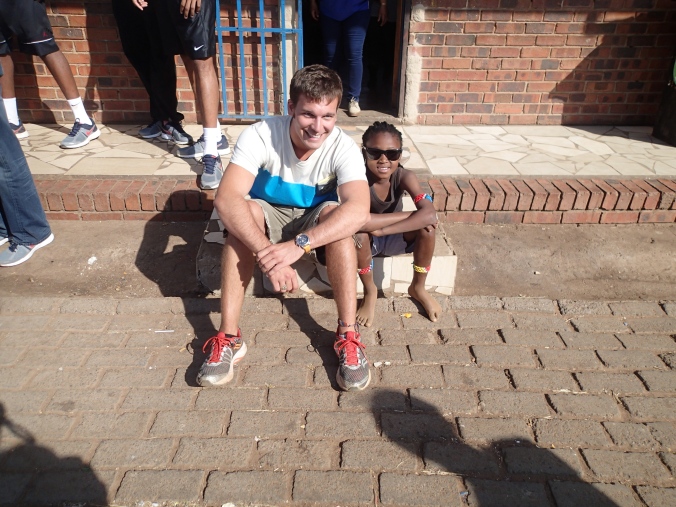There are some things in life that can’t be forced. Reflective writing and bowel movements find themselves at the top of that list for me, but that very well might be more a manifestation of my last week than anything.
I am home. The Conquest has returned to the States.
I’ve been trying to talk myself into writing some sort of a concluductory post since Monday. I had 27 hours in flight to think about it, but I avoided my computer the whole time. I had a bus ride, a few quiet hours here and there, and finally a 4 hour staring match with a blank sheet of paper.
I just never could figure out how to force it.
Then, as most great ideas do, it came to me in the midst of a hot shower (shower temperature and creative output have a correlation nearing 100% for me.)
This post wasn’t meant to be a conclusion or a hasty recap of the last 6 months, it was yet another jumping off point.
The Conquest hasn’t ended, it has merely entered a new phase. Every idea has a life cycle, whether a business, a diet, a relationship or evening plans. There is the exciting “eureka moment,” there is the planning stage, there is the long (sometimes arduous) process of execution, and then there is always the inevitable evolution.
That’s what the Conquest is going through now.
I struggled all week about “doing the end justice” and pressuring myself to make this the best piece that I’ve written the whole time. It has driven my digestive system into a dither, but absolutely nothing had appeared on a page.
I wanted there to be some great takeaway, something gained from the last 6 months that I could point to and convince myself (and others) that “see, I knew I’d find my million dollar idea out there somewhere.”
Truth is, I didn’t even find myself. If anything, I now have a more ambiguous sense of self than I ever have.
And then I realized it.
No greater treasure will man ever find.
**********
Surrounded by a sensory overload of smells, noise, colors and people, I found a life without distractions.
The difference between social interaction and social media regained a clarity lost in the digital din. Shared meals showed why nearly every society makes hospitality and “the breaking of bread” a cornerstone virtue. I got to experience the shared attributes of humanity, those which transcend language, culture, politics or any of the other “higher forms” of civilization, to reveal the most basic of human necessities.
I found in the midst of abject poverty, the existential truth in Mark Twain’s words, “Comparison IS the death of joy.”
I saw all the complications of life slip away, if even only briefly. We are born, we love and we die. The only difference is our reaction to these intractable truths.
That slavery will exist always in some iteration is an inviolable truth of the human condition. The absence of physical chains hasn’t ended slavery any more than a cloudy night ends the moon. Slavery to opinion, to possessions, and to expectations are chains more powerful than iron.
The cruelest forms of slavery will always be self-inflicted.
I found that there is much more that unites people than divides. I saw, that outside of our protected zones of comfort, people will seek to connect rather than exclude. However, when the status quo becomes its own self-evident good, divisions both natural and manmade will seek to separate each from their neighbor.
I found sustainable living in a place where my bank account dropped daily.
The world showed me to be a fool time and time again, but acknowledgement of my ignorance was a comfort in itself. I found that those who think they know the most are always the least likely to learn, and I impolitely recused myself from membership in that self-satisfied group.
I found that a fight between two friends willing to listen to one another is one of the greatest tools for growth that man will ever find. I also found that some friendships are less permanent than we would hope, but that an end does not define the whole.
I saw the human condition at its most vulnerable, and witnessed the strength that it takes to be weak. Death comes for us all, regardless of color, income or location.
Fear only diminishes each breath that remains.
Like Cassandra foreseeing the destruction of Troy, I stood in the midst of the jungles of Laos with tears in my eyes that this too would someday fall victim to the unstoppable force of consumerism, a natural treasure sold piecemeal as presswood Ikea TV stands and glossy paper advertisements.
The dangers of confusing technical expertise with wisdom became clearer and clearer. Just as a man with a hammer sees every problem as a nail, so too does technical expertise lack the vision to see the unintended consequences of a “solution.”
As the West encroaches further and further into societies which grew up Darwinistically different values to our own, we will find ourselves trying to repair and improve mechanisms that we truly do not understand. Just as we have moved further from the values of our forefathers, cocksure in our belief that newer, bigger, and faster are self-evident goods, so to will we unintentionally destroy that which has bound vibrant communities together for centuries.
The list of observations I made could go on for days, but they all lead to the same inexorable conclusion. For all the knowledge that my travels afforded me, they merely showed how woefully insufficient the framework I use to cobble it together truly is. Only by acknowledging our own stunning ignorance can any of us hope to truly learn, and only by questioning those “truths” we’ve held as absolute can we ever be sure of anything at all.
Even as the world becomes interconnected at an ever increasing pace, it appears to me that individuals are retreating further and further into our own rigid beliefs. This would seem, to a mildly logical man, to be two opposing forces eventually destined for direct conflict. Will people simply pop their heads out of the foxhole after the battle occurs and acknowledge the “truth” as told by the victors?
History doesn’t seem to think so, although through most of human history, we didn’t encourage our best thinkers to become “excellent sheep.”
I hope to have avoided that comfortable affliction.
**********
The Conquest gave me what all great conquests will, the confidence to chase a new horizon.
I didn’t come back with a multi-million dollar idea and I didn’t come back with a groundbreaking novel in the can. I didn’t bring home the woman of my dreams (even if I now know a few locations where she might be hiding.)
I made some of the best friends I could ask for. I saw a side of myself that I didn’t think existed. I freed myself from the endless barrage of manipulated messages, both commercial and from a fear-inducing media, and the world I found turned out to be a safer and more wonderful place than I could’ve possibly imagined.
I saw that there are really a million ways to die, and that to live in fear of any of them is a fool’s errand. I made peace with a few deaths that I hadn’t properly processed, and I realized through bitter tears on an empty Thai beach, that you can say a proper goodbye to a loved one without a body or a suit.
I found friendships can be deeper after 3 days than some can after 10 years, and I saw the power of the human spirit in overcoming adversity.
I saw the good in man that I thought that I’d forgotten, and I saw some of the forgotten faceless in places that won’t ever get talked about on the news.
The man in the mirror looks back at me differently today.
He smiles a lot more. He reminded me that he’s the only one in this life that will take every step with me, and that if I don’t make peace with him, what the hell chance to I have with the rest of it. He showed me that I can be as happy in a bunk bed as I can in a multi-million dollar house, and that sometimes the best look we’ve got has a few tears running down our face.
I missed many things while I was gone. I missed a parcel of babies being born, and the weddings of some of my dearest and oldest friends.
Nothing is without cost, yet another universal truth that I uncovered.
The former commodity trader found that there are only two commodities that really matter.
Love and time.
As I returned home and picked up the 2 month old daughter of two of my best friends, I realized that instantly. Even if that were the only thing the Conquest had taught me, it would’ve been enough.
Thankfully it taught me so much more.
************
Thank you to everyone who has taken the time to follow my blog. The support that I’ve gotten from friends, family and total strangers who happened accidentally wandered on has been stunning and humbling.
I hope you enjoyed reading about it a tenth as much as I enjoyed living it. As I re-integrate back into “reality”, there will be more posts of reflection about some of the things I’ve seen and done. There will also be some thoughts on life back in the Western world as I re-acclimate myself to a reality that was once the only one I’d ever known.
If I can offer any advice on travel, the first piece is “Do it.” Anything more specific, please reach out to chrismoorman13@gmail.com and I’d be more than happy to offer tips or advice on any of the places I’ve been, or backpacking in general. We were all blessed with a wide and wonderful world on which to live, and it is a true shame to relegate ourselves to only the small corners where we were born.
Life as a hastily planned adventure works. Just poke around my ramblings and musings on this page if you need proof.




















